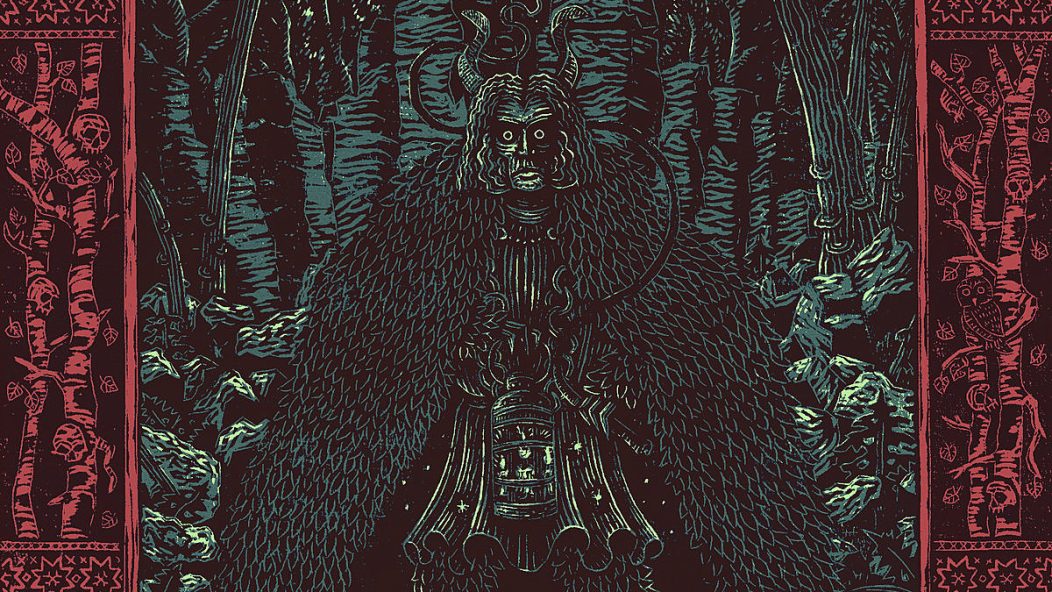
Malokarpatan's Proggy Theater Blossoms on Upcoming Third Album "Krupinské ohne"

…
It’s of course obnoxious to say something as simple as Malokarpatan play real black metal, but the temptation is still there. That’s because the band draws more from the first wave than the second and beyond, keeping firm the deep influence of traditional heavy metal that bands like Venom, Sabbat, and Hellhammer displayed way back when that certain later black metal strains worked hard to weed out. Malokarpatan’s music is also largely devoid of any strains of death metal, something that crept in around the second wave as certain players turned away from the increasing technicality and depths of contemporary thrash and death metal to lay the groundwork for what we now generally refer to as black metal. It’s an interesting question of hermeneutics and epistemology, trying to decide whether Malokarpatan is perhaps more a traditional heavy metal band with blackened elements or a more primal, elemental, chthonic black metal band, one that draws deeply and exclusively from the roots of the genre and not its various outgrowths.
We are able to ask such a question because the music of the group leaves little to question. They are an unambiguously good band, striking somewhere in the middle space between traditional/speed metal and vast prog rock/first-wave black metal theatrical soundscapes. Malokarpatan’s newest, the upcoming Krupinské Ohne, leans closer to the latter than the former this time around, featuring a theatrically-paced narrative and more explicit 1970s prog-rock structuring and pacing than their first two albums. The group is wise not to fix what ain’t broke, keeping the riffing in that perfect place between machine precision and utter unfettered slop, giving just enough looseness to have a raw and ragged quality without feeling indeliberate or sloppy. Likewise, the production keeps that grimy worn-cassette grit that we treasure in underground metal, having those pleasant gestures to overly strong reverb and odd soundfield spacing that we find so charming about classic heavy metal obscurities.
Have a listen for yourself with the premiere of “V brezových hájech poblíž Babinej zjavoval sa nám podsvetný velmož” (English: “In Birchen Groves Near Babina, The Netherworld Magnate Has Been Appearing to Us”) below:
…
…
Malokarpatan is a finely shaped band, and their major stated influence of Master’s Hammer can be felt keenly all over these tracks. Malokarpatan knows well that from Black Sabbath, Judas Priest, and Rainbow up to that powerful first wave of black metal bands, progressive rock has always been a powerful presence within their chosen source material. And while they’ve always contained progressive flourishes beneath the beautifully primitive and raw playing, here they allow a finer filigree and polish that underscores what great composers and players they are.
The above-streaming track is the most indicative of the direction and sound of this record compared to their earlier material. This is, of course, partly to due to its length; at 13 minutes, it’s not only the album’s but also the band’s longest song to date. It’s not just about the length, though: the band doesn’t merely recycle a long and heavy groove like a doom metal band but instead make sure, like their prog-rock heroes, to incorporate a series of thematically and emotionally linked riffs, some of which act as preludes to material fleshed out more fully across the four following tracks.
It’s here that Malokarpatan show the strongest argument yet for their own chosen comparison to Cultes des Ghoules, a band they cite frequently in interviews as a fitting compatriot to their own music. It wouldn’t be impossible to imagine the kind of ragged, raw and evil progressive rock shown here, black metal more by spirit and malice than by blast beat and shriek, appearing on one of Cultes des Ghoules’ similarly theatrical records. It helps as well that this is a concept album, a historical fable about a real case of prosecuted witchcraft in 17th Century Slovakia, a move also similar to their contemporary inspiration.
The group has stated elsewhere in interviews that this shift to more blown out progressive material shouldn’t be taken as a future direction for the band but instead a passing flavor, one meant to individualize this record in their body of work, a smart move to give the record more character. And this song in particular shows their strength here; it’s hard to imagine someone interested in first-wave and more experimental and progressive approaches to black metal or more raw approaches to prog not being compelled by this song and the album it comes from.
…
Krupinské ohne releases March 20th via Invictus Productions and The Anja Offensive.
…

…
Support Invisible Oranges on Patreon and check out our merch.
…










